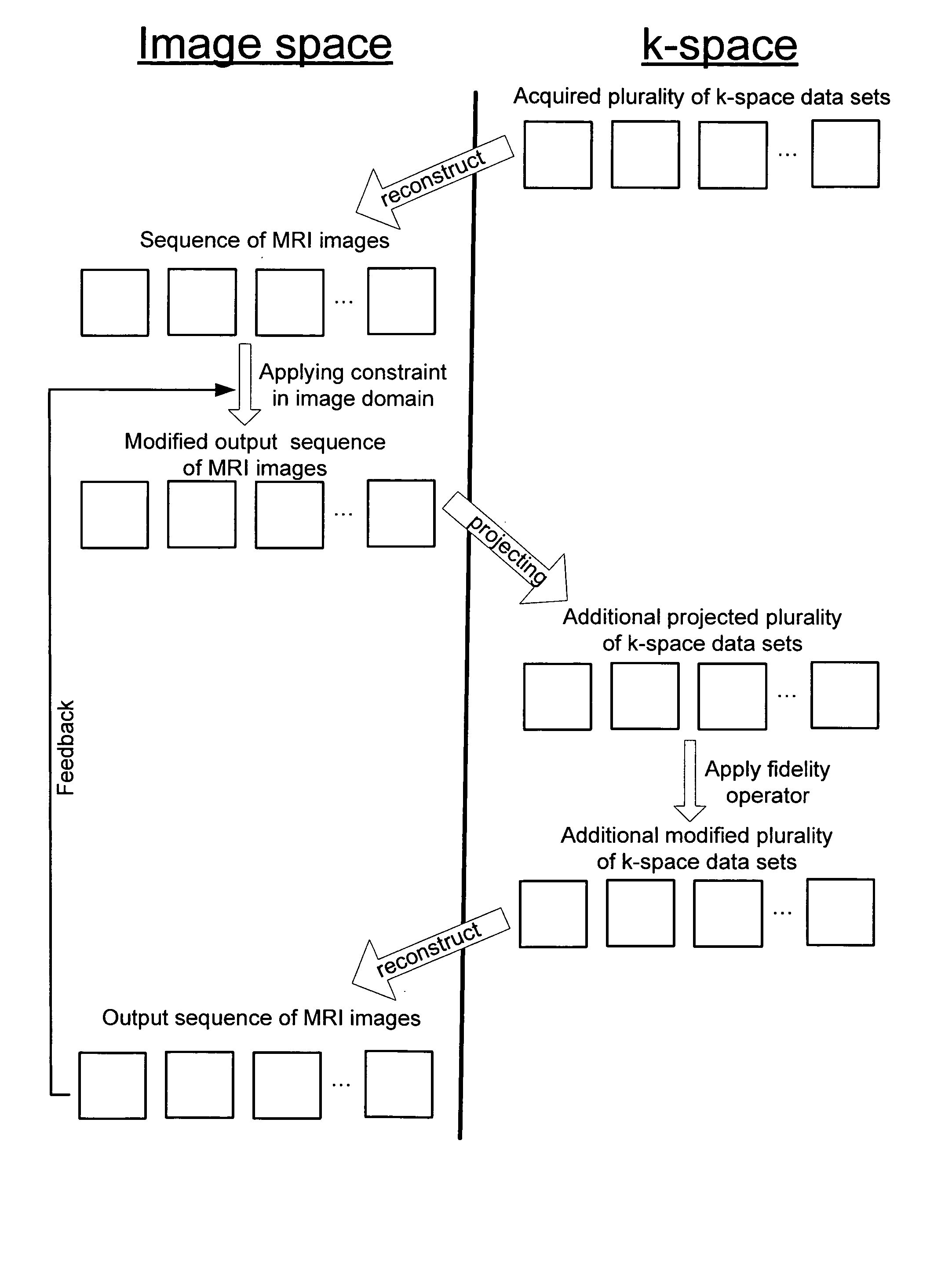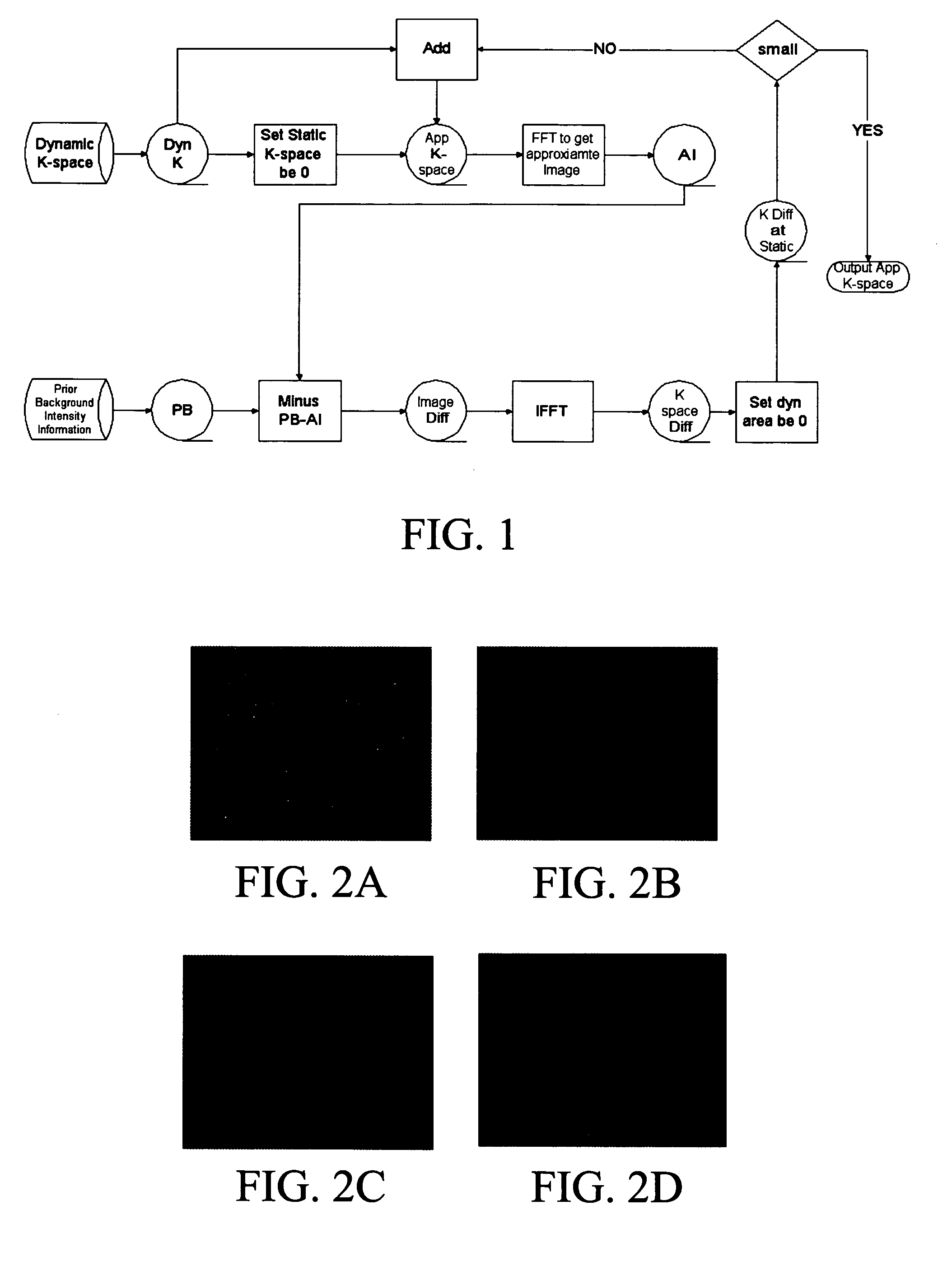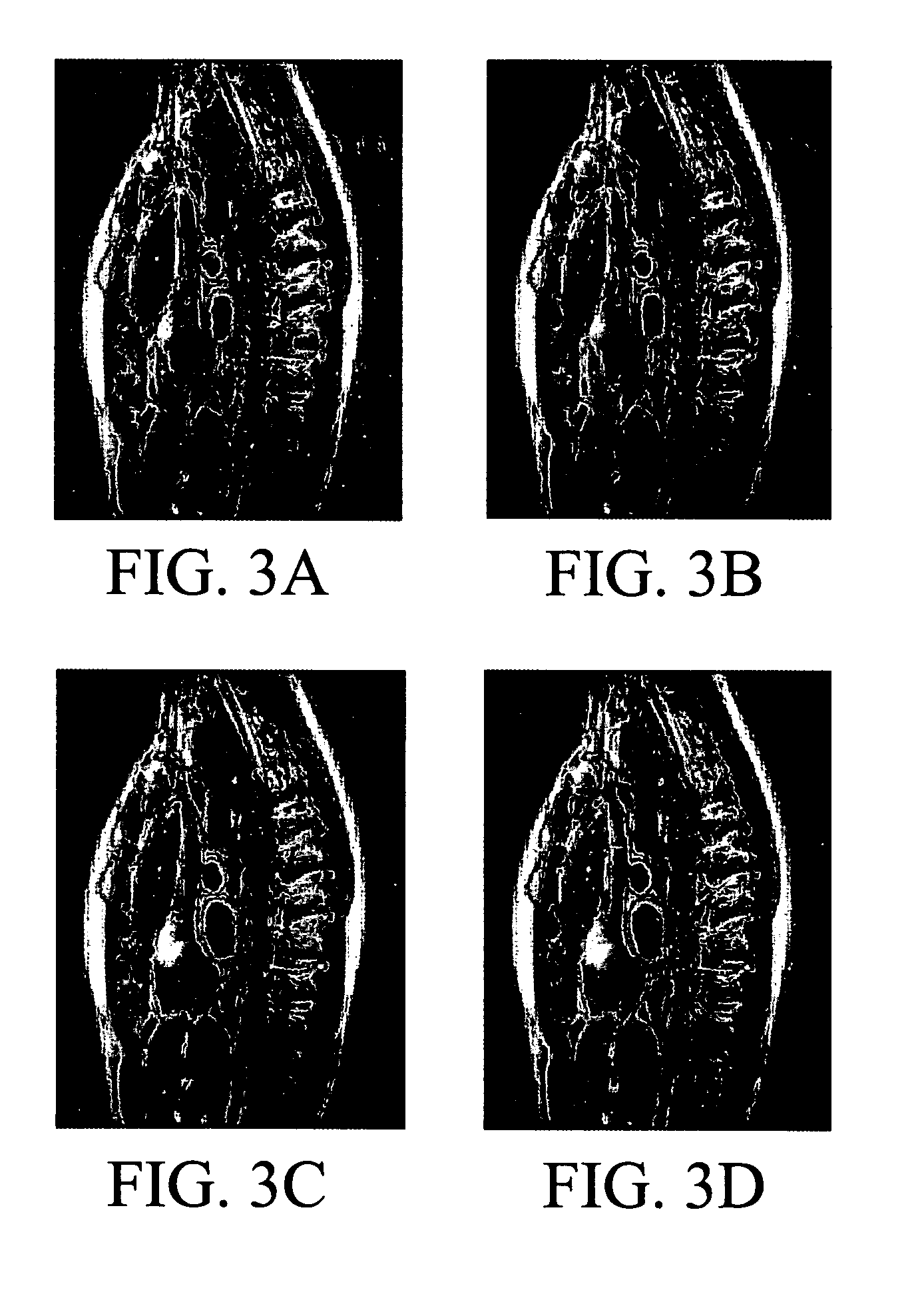Method for generating fast magnetic resonance images
a magnetic resonance and image technology, applied in the field of image reconstruction technique, can solve the problems of reducing the acquisition time of mri, reducing reducing the amount of acquired sensitivity maps, so as to reduce the number of unknowns, improve image quality, and reduce the necessary acquisition time
- Summary
- Abstract
- Description
- Claims
- Application Information
AI Technical Summary
Benefits of technology
Problems solved by technology
Method used
Image
Examples
example 1
[0099]An important idea in k-t SENSE [27] is to minimize the support of the image in x-f space and, hence, improve the reconstruction performance. In an embodiment of the subject invention, this idea can be utilized in k-t space and used by k-t GRAPPA[28]. For a sequence of k-space data set for a dynamic subject, the mean of k-space along time direction can be produced. A new sequence of k-space data sets can be generated by the subtraction from original k-space of the mean of k-space. It is often true for dynamic images that the new sequence of k-space data sets corresponds to images that have reduced support. So this k-space can be better for parallel imaging techniques. In a specific embodiment, k-t GRAPPA can generate better results with the residue sequence of k-space data sets, or, in other words, the sequence of k-space data sets where the data sets are the original data minus the mean of the data sequence at that position in k-space. Experiments on Cardiac MRI with different...
PUM
 Login to View More
Login to View More Abstract
Description
Claims
Application Information
 Login to View More
Login to View More - R&D
- Intellectual Property
- Life Sciences
- Materials
- Tech Scout
- Unparalleled Data Quality
- Higher Quality Content
- 60% Fewer Hallucinations
Browse by: Latest US Patents, China's latest patents, Technical Efficacy Thesaurus, Application Domain, Technology Topic, Popular Technical Reports.
© 2025 PatSnap. All rights reserved.Legal|Privacy policy|Modern Slavery Act Transparency Statement|Sitemap|About US| Contact US: help@patsnap.com



